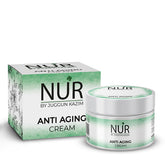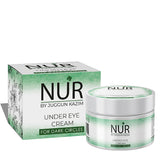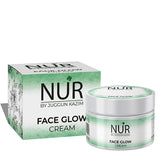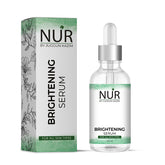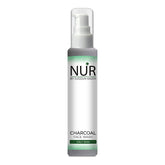How many times have we heard that expression? What does that really mean? I think it’s helpful to understand what really happens when we eat, and why it matters so much.
If taken literally, I could imagine when I eat a burger, I would turn into a burger; or, when I eat carrots, I would turn into carrots. Even though that’s not exactly how it works, we are on the right track! We are what we eat because each food we choose is a collection of molecules of information-messages to the body. We digest or breakdown the food into smaller units to help “run the operations” of the body.
We often use the analogy that food is fuel for our body, like gas is fuel for our car. The difference is that the engine doesn’t turn into the gas; we do become the food. The energy, composition, and spirit of the food become the energy, composition, and spirit of our whole body whether or not we are aware of it.
What is a healthy diet?
 Eating a healthy diet is not about strict limitations, staying unrealistically thin, or depriving yourself of the foods you love. Rather, it’s about feeling great, having more energy, improving your health, and boosting your mood.
Eating a healthy diet is not about strict limitations, staying unrealistically thin, or depriving yourself of the foods you love. Rather, it’s about feeling great, having more energy, improving your health, and boosting your mood.
Healthy eating doesn’t have to be overly complicated. If you feel overwhelmed by all the conflicting nutrition and diet advice out there, you’re not alone. It seems that for every expert who tells you a certain food is good for you; you’ll find another saying exactly the opposite. The truth is that while some specific foods or nutrients have been shown to have a beneficial effect on mood, it’s your overall dietary pattern that is most important. The cornerstone of a healthy diet should be to replace processed food with real food whenever possible. Eating food that is as close as possible to the way nature made it can make a huge difference to the way you think, look, and feel.By using these simple tips, you can cut through the confusion and learn how to create—and stick to—a tasty, varied, and nutritious diet that is as good for your mind as it is for your body.
The fundamentals of healthy eating
 While some extreme diets may suggest otherwise, we all need a balance of protein, fat, carbohydrates, fiber, vitamins, and minerals in our diets to sustain a healthy body. You don’t need to eliminate certain categories of food from your diet, but rather select the healthiest options from each category.
While some extreme diets may suggest otherwise, we all need a balance of protein, fat, carbohydrates, fiber, vitamins, and minerals in our diets to sustain a healthy body. You don’t need to eliminate certain categories of food from your diet, but rather select the healthiest options from each category.
Protein gives you the energy to get up and go—and keep going—while also supporting mood and cognitive function. Too much protein can be harmful to people with kidney disease, but the latest research suggests that many of us need more high-quality protein, especially as we age. That doesn’t mean you have to eat more animal products—a variety of plant-based sources of protein each day can ensure your body gets all the essential protein it needs.
Fat, Not all fat is the same. While bad fats can wreck your diet and increase your risk of certain diseases, good fats protect your brain and heart. In fact, healthy fats—such as omega-3s—are vital to your physical and emotional health. Including more healthy fat in your diet can help improve your mood, boost your well-being, and even trim your waistline.
Fiber. Eating foods high in dietary fiber (grains, fruit, vegetables, nuts, and beans) can help you stay regular and lower your risk for heart disease, stroke, and diabetes. It can also improve your skin and even help you to lose weight.
Calcium. As well as leading to osteoporosis, not getting enough calcium in your diet can also contribute to anxiety, depression, and sleep difficulties. Whatever your age or gender, it’s vital to include calcium-rich foods in your diet, limit those that deplete calcium, and get enough magnesium and vitamins D and K to help calcium do its job.
Carbohydrates are one of your body’s main sources of energy. But most should come from complex, unrefined carbs (vegetables, whole grains, fruit) rather than sugars and refined carbs. Cutting back on white bread, pastries, starches, and sugar can prevent rapid spikes in blood sugar, fluctuations in mood and energy, and a build-up of fat, especially around your waistline.
Making the switch to a healthy diet

Switching to a healthy diet doesn’t have to be an all or nothing proposition. You don’t have to be perfect; you don’t have to completely eliminate foods you enjoy, and you don’t have to change everything all at once—that usually only leads to cheating or giving up on your new eating plan.
A better approach is to make a few small changes at a time. Keeping your goals modest can help you achieve more in the long term without feeling deprived or overwhelmed by a major diet overhaul. Think of planning a healthy diet as a number of small, manageable steps—like adding a salad to your diet once a day. As your small changes become habit, you can continue to add more healthy choices.
Add more fruit and vegetables to your diet
 Fruit and vegetables are low in calories and nutrient dense, which means they are packed with vitamins, minerals, antioxidants, and fiber. Focus on eating the recommended daily amount of at least five servings of fruit and vegetables and it will naturally fill you up and help you cut back on unhealthy foods. A serving is half a cup of raw fruit or veg or a small apple or banana, for example. Most of us need to double the amount we currently eat.
Fruit and vegetables are low in calories and nutrient dense, which means they are packed with vitamins, minerals, antioxidants, and fiber. Focus on eating the recommended daily amount of at least five servings of fruit and vegetables and it will naturally fill you up and help you cut back on unhealthy foods. A serving is half a cup of raw fruit or veg or a small apple or banana, for example. Most of us need to double the amount we currently eat.
To increase your intake:
- Add antioxidant-rich berries to your favorite breakfast cereal
- Eat a medley of sweet fruit—oranges, mangos, pineapple, grapes—for dessert
- Swap your usual rice or pasta side dish for a colorful salad
- Instead of eating processed snack foods, snack on vegetables such as carrots, snow peas, or cherry tomatoes along with a spicy hummus dip or peanut butter
5 TOP TAKEAWAYS
- Eat real whole food – know the message of that food
- Balance your choices of protein, fats, and carbs
- Pause before you eat, and take 2 full breaths
- Chew your food – slow down and enjoy what you are becoming
- Eat real food-that is worth saying twice
Bonus tip: introduce yourself to a vegetable you have never met, or a spice that looks and smells amazing to you. Enjoy the journey of connecting to the wonder of your body and the many ways you can choose how to be by what you eat!

